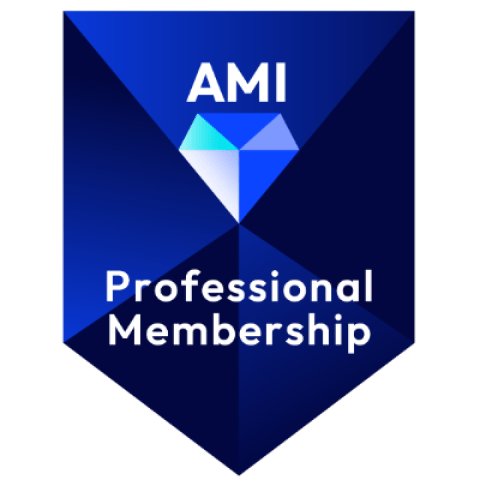Content Marketing Mastery: Strategies for Engaging Audiences


Ever wondered why some businesses seem to effortlessly engage their audience, while others struggle to make an impact?
The secret sauce lies in mastering the art of content marketing.
In this post, we discussed what content marketing truly means, its key metrics, and misconceptions.
We also made a list of tried-and-tested strategies by successful businesses.
What is Content Marketing?
Imagine you’re a coffee shop owner.
Instead of just advertising your coffee, you might post IG reels or blogs about the best ways to brew coffee at home or recipes for coffee-based desserts. Over time, your audience begins to see you as a coffee expert — someone who’s trustworthy and definitely knows their stuff. As a result, they’re more likely to buy coffee from your shop over your competitors.
This is how content marketing works.
Content marketing is all about creating and sharing valuable, relevant content to attract and engage a clearly defined audience. Nope, it’s not just about pitching your products or services! You’re providing genuinely useful information to your audience to help them solve problems or improve their lives.
Think of it as a way to build trust and loyalty with your customers by consistently delivering value.
5 Common Misconceptions in Content Marketing


1. It’s only creating and posting content
One of the biggest misconceptions about content marketing is that it’s just about creating content.
Many believe that if you write a blog post or make a video, customers will come flocking. The truth is, that content marketing requires a strategic approach.
You need to understand your customers. What makes them behave the way they do? Then, create content that addresses their needs, and distribute it effectively.
2. You’ll see results next month
Another misconception is that content marketing provides immediate results. Nope. It’s a long-term game.
You’re building relationships and trust, which takes time but pays off significantly in the long run.
3. It doesn’t require funding
Some think content marketing is free, which is far from the truth.
While creating content might be less expensive than traditional advertising, it requires investment in time, resources, and sometimes money to do it right.
4. More content = better results
Many believe that the more content you produce, the better your results will be.
The truth is that quality trumps quantity. It's better to produce a few pieces of high-quality, well-researched content than a large volume of mediocre content.
High-quality content is more likely to engage your audience, build trust, and drive conversions.
5. SEO is the most important thing in the universe
It’s a myth that focusing solely on SEO will ensure success in content marketing.
While SEO is important, creating valuable, engaging content for your audience is equally crucial.
Balancing SEO with user experience, relevance, and engagement will yield better results.
KPIs and OKRs for Content Marketing
There’s no arguing that content marketing is effective.
With that said, like any kind of strategy, content marketing needs refining and nurturing.
This is why content marketers use KPIs and OKRs to measure the effectiveness of their strategy.
OKR (Objectives and Key Results) is a goal-setting framework used to define and track objectives and their outcomes. OKRs help align the objectives of an organization with measurable results and ensure everyone is working collaboratively towards the same goals.
KPIs (Key Performance Indicators) are metrics used to evaluate the success of an organization or a particular activity. They are used to measure the effectiveness of actions taken towards achieving business goals.
By tracking OKRs and KPIs, content marketers can ensure their efforts are aligned with the broader goals of the business, leading to more impactful content marketing initiatives.
Content marketers should track KPIs frequently (daily, weekly, monthly) to monitor ongoing performance, make short-term adjustments, and evaluate specific campaigns.
On the other hand, they should set and review their OKRs quarterly or yearly to guide long-term strategic planning, assess overall progress, and ensure alignment with business objectives.
Here are some of the most important KPIs:
Content Marketing KPIs
1. Website Traffic
Metric: Number of unique visitors, page views, and sessions.
Why it Matters: This KPI measures the reach and visibility of your content.
2. Engagement Metrics
Metric: Average time on page, bounce rate, comments, shares, likes, and social media interactions.
Why it Matters: Indicates how well your content resonates with your audience.
3. Conversion Rates
Metric: Percentage of visitors who complete a desired action (e.g., filling out a form, downloading a resource, or making a purchase).
Why it Matters: Directly measures the effectiveness of your content in driving business goals.
4. Lead Generation
Metric: Number of new leads generated through content marketing efforts.
Why it Matters: Shows how well your content attracts potential customers.
5. SEO Performance
Metric: Keyword rankings, organic traffic, and backlinks.
Why it Matters: Reflects the visibility of your content in search engines and its ability to attract organic traffic.
6. Customer Retention
Metric: Repeat visitors, returning customers, and customer loyalty metrics.
Why it Matters: Indicates the long-term value of your content in maintaining customer relationships.
OKRs for Content Marketing
1. Objective: Increase Brand Awareness
Key Results:
- Achieve a 20% increase in website traffic over the next six months.
- Gain 1,000 new social media followers within the next quarter.
- Earn 50 mentions in industry-related publications or blogs.
2. Objective: Enhance Audience Engagement
Key Results:
- Increase average time on page by 30% within three months.
- Achieve a 25% increase in social media shares and likes for content posts.
- Receive 100 new comments on blog posts over the next quarter.
3. Objective: Drive Lead Generation
Key Results:
- Generate 500 new leads from content marketing efforts within the next six months.
- Achieve a 15% conversion rate on content landing pages.
- Increase the number of gated content downloads by 40% over the next quarter.
4. Objective: Improve SEO Rankings
Key Results:
- Rank in the top 5 search results for 10 targeted keywords within six months.
- Increase organic search traffic by 25% over the next quarter.
- Acquire 100 new high-quality backlinks to the website within six months.
5. Objective: Boost Customer Retention
Key Results:
- Achieve a 20% increase in repeat visitors to the blog within the next quarter.
- Increase email newsletter open rates by 15% within three months.
- Improve customer satisfaction scores related to content by 10% within six months.
Content Marketing in the Age of AI
In the age of AI, content marketing is evolving in exciting ways.


1. Hypersonalization of content
AI can personalize content at scale, ensuring that each piece resonates with the individual who consumes it. Imagine sending customized email newsletters based on a reader’s past interactions with your content.
2. Mass content creation
AI tools can also help with research and content creation. A lot of businesses are already integrating AI into their content workflow and even their customer service operations.
For example, tools like chatbots can handle customer queries, freeing up your team to focus on more strategic tasks.
3. More streamlined data analytics
AI can analyze vast amounts of data, helping you assess the best-performing content and refine your strategy.
With that said, while AI can enhance your content marketing efforts, it’s crucial to maintain a human touch.
Beyond sounding genuine, you might also discourage your customers by letting AI take the lead all the time.
AI-generated content can stick out like a sore thumb when you don’t proofread or refine it to your brand tone and voice.
20 Successful Content Marketing Strategies to Steal
Each of these companies has excelled at their content marketing efforts.
1. Duolingo
- Platform: TikTok
- Strategy: Using their mascot for humorous and engaging content, Duolingo has amassed over 4.5 million followers on TikTok. Their videos rarely mention the product directly but significantly raise brand awareness through entertaining content.
- Impact: Duolingo’s approach has helped them stand out on a platform many brands struggle to navigate effectively.
2. Canva
- Platform: Canva Design School
- Strategy: Canva educates its users on design through its Design School, which offers tutorials, courses, and resources for creating professional-looking graphics.
- Impact: This strategy not only helps users get the most out of Canva’s tools but also drives user engagement and loyalty..
3. Chewy
- Platform: YouTube
- Strategy: Chewy’s YouTube channel features educational videos about pet care, product recommendations, and customer testimonials.
- Impact: By providing useful information, Chewy has built a community of pet owners who trust and rely on their content, enhancing customer loyalty and increasing sales.
4. HubSpot
- Platform: Blog and Academy
- Strategy: HubSpot offers in-depth articles, guides, and courses on marketing, sales, and customer service through its blog and HubSpot Academy.
- Impact: Their comprehensive resources attract a wide audience, driving significant traffic and establishing HubSpot as a thought leader in the industry..
5. Crunchyroll
- Platform: YouTube (Crunchyroll Collections)
- Strategy: Crunchyroll uses YouTube to share clips and compilations from popular anime, keeping its audience engaged and attracting new subscribers.
- Impact: This strategy helps maintain top search results for anime content and drives subscriptions to their streaming service..
6. Glossier
- Platform: Social Media and Blog
- Strategy: Glossier creates user-generated content and encourages customers to share their own beauty routines and product reviews on social media.
- Impact: This approach has built a strong community of loyal customers and significantly increased brand awareness and engagement.
7. REI
- Platform: Co-op Journal Blog and YouTube
- Strategy: REI provides adventure stories, outdoor guides, and educational videos on outdoor activities.
- Impact: By offering valuable content that resonates with outdoor enthusiasts, REI strengthens its brand connection and drives sales.
8. Patagonia
- Platform: Website and Social Media
- Strategy: Patagonia focuses on environmental activism and shares content about its sustainability efforts and eco-friendly practices.
- Impact: This not only aligns with their brand values but also attracts customers who are passionate about sustainability, enhancing brand loyalty and advocacy (HubSpot Blog)
9. Red Bull
- Platform: Red Bull Media House
- Strategy: Red Bull creates high-energy content around extreme sports, music, and lifestyle events, producing videos, articles, and live events
- Impact: Their content marketing strategy has made Red Bull synonymous with extreme sports and adventure, driving global brand recognition and engagement.
10. Airbnb
- Platform: Blog and YouTube
- Strategy: Airbnb’s content focuses on travel guides, host stories, and community experiences, showcasing unique destinations and accommodations.
- Impact: This content not only inspires travel but also highlights the diverse experiences available through Airbnb, increasing bookings and host sign-ups.
11. HubSpot
- Platform: Blog, Academy, and YouTube
- Strategy: HubSpot offers comprehensive resources, including in-depth articles, tutorials, and courses on marketing, sales, and customer service. They provide value through educational content and actionable insights
- Impact: HubSpot’s blog attracts millions of visitors monthly, and their Academy has trained thousands of professionals, solidifying their position as industry leaders.
12. Salesforce
- Platform: Blog, Trailhead, and Webinars
- Strategy: Salesforce’s content marketing focuses on providing educational resources through their Trailhead platform, offering interactive learning experiences and webinars that cover a wide range of business topics
- Impact: Salesforce has built a robust community of users and developers, with Trailhead boasting millions of badges earned and a strong engagement in their webinars (Fit Small Business)
13. Slack
- Platform: Blog, Customer Stories, and YouTube
- Strategy: Slack shares customer success stories, tips for effective team communication, and product updates through their blog and video content. They also produce engaging social media content.
- Impact: Slack’s storytelling approach has helped it grow a loyal user base and maintain high engagement rates on its content platforms.
14. Zendesk
- Platform: Blog, Help Centre, and Webinars
- Strategy: Zendesk provides valuable insights into customer service trends, best practices, and product tutorials. Their content includes case studies, research reports, and thought leadership pieces.
- Impact: Zendesk’s content marketing efforts have positioned them as thought leaders in customer service, driving significant traffic and engagement from their target audience (Semrush).
15. Intercom
- Platform: Blog, Academy, and Books
- Strategy: Intercom focuses on providing actionable insights into customer support and engagement through its blog, Intercom Academy, and published books on customer communication strategies
- Impact: Intercom’s educational content has helped them build a strong reputation in the SaaS industry, with their blog attracting a large, engaged audience.
16. Mailchimp
- Platform: Blog, Guides, and YouTube
- Strategy: Mailchimp offers a mix of marketing tips, customer success stories, and how-to guides. They also produce engaging video content to help users get the most out of their platform.
- Impact: Mailchimp’s diverse content has helped them maintain high customer engagement and retention, with their blog and video content being widely shared and appreciated.
17. Dropbox
- Platform: Blog, Help Centre, and Webinars
- Strategy: Dropbox shares productivity tips, collaboration strategies, and product updates through their blog and webinars. Their content is designed to help users maximize their use of Dropbox.
- Impact: Dropbox’s content marketing has contributed to high user engagement and satisfaction, driving both adoption and retention of their services (Ahrefs).
18. Ahrefs
- Platform: Blog, Academy, and YouTube
- Strategy: Ahrefs provides extensive SEO and marketing guides, tutorials, and case studies through their blog and Ahrefs Academy. They also produce detailed video tutorials.
- Impact: Ahrefs’ content is highly regarded in the SEO community, driving significant traffic to their site and establishing them as a trusted resource for digital marketers
19. Asana
- Platform: Blog, Guides, and YouTube
- Strategy: Asana’s content focuses on project management best practices, productivity tips, and user success stories. They offer detailed guides and video tutorials to help users optimize their workflow.
- Impact: Asana’s informative content has helped them grow a dedicated user base, with high engagement and usage of their project management tools.
20. Trello
- Platform: Blog, Guides, and Webinars
- Strategy: Trello shares productivity hacks, team collaboration tips, and creative ways to use their platform through their blog and guides. They also host webinars to engage with their community.
- Impact: Trello’s engaging content has helped them maintain a strong presence in the project management space, driving user growth and retention.
Conclusion
As we wrap up, remember this: content marketing isn’t just about creating content; it’s about creating meaningful connections.
By debunking misconceptions, understanding key metrics, and embracing AI in content creation, you’ll hit your business goals through content marketing.
Start content marketing with Nexelo
Looking to take your content marketing to the next level?
Partner with our content marketers here at Nexelo.
We specialize in crafting meaningful content that resonates with your customers, backed by data insights and the best AI tools.
Let's create engaging content that drives real results for your business.
Connect with us today to find out how we can support you.









 Download on the App Store
Download on the App Store Get it on Google Play
Get it on Google Play





